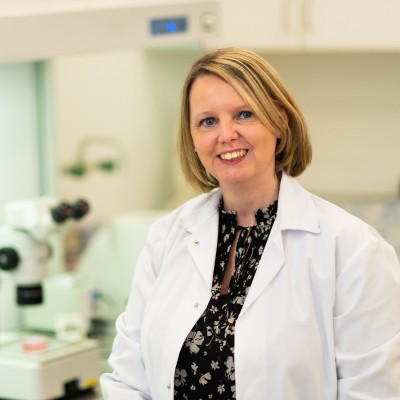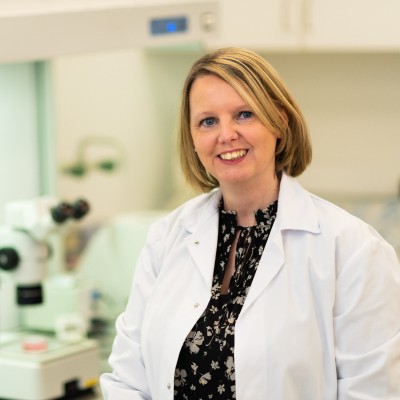Get to know Ellen Goossens, one of the invited speakers to the upcoming 16th NYRA Meeting in Brussels (May 27th-29th), through this interview.
Prof. Ellen Goossens graduated in Biomedical Sciences at the Vrije Universiteit Brussel in 2000. She is trained in male fertility preservation under the supervision of Prof. Dr. Herman Tournaye at the laboratory Biology of the Testis of the Vrije Universiteit Brussel, where she obtained her doctoral degree in 2006. She undertook postdoctoral training in the same lab and became lab coordinator in 2012. Currently, she is chairman of the research group Biology of the Testis and focuses on cryopreservation, transplantation, and in vitro differentiation of spermatogonial stem cells. She has published more than 80 papers in (inter)national journals and contributed to 7 book chapters. She has been invited to speak at many national and international conferences. In 2011, she was awarded the prize of the Royal Belgian Academy for Medicine for her work on the prevention of infertility after chemo- or radiotherapy.

When and why did you decide to work in the field of reproductive biology?
In fact, the only time I really decided to work in the field of reproductive biology was when I had to find an internship for my Master’s studies in Biomedical Sciences. I felt honored and privileged to be taught embryology by Prof. Van Steirteghem, the ‘inventor’ of ICSI. I enjoyed his course a lot as well as the lessons on male fertility given by his colleague Prof. Tournaye. I was very happy doing my internship at the Reproductive Biology lab at VUB, so I applied for a PhD position, then for a postdoc, and finally for a professorship. I never left…
Could you name a moment of failure (and which lesson did you learn from it)?
There are several. Every time a project application doesn’t get granted, it feels like a failure. Every time again, you need to find the courage to go on. And, one day, when you’ve finally rewarded the grant, you forget all the hard work and start with renewed motivation the next one ;-).
I learned to never give up and keep believing in my dreams and my capacities. Persistence pays off.
What was the greatest success in your career?
My greatest success is the collaboration with European partners. This collaboration saw the light during the Testis Workshop in Stockholm in 2012. Young scientists gathered for dinner and started to make plans for the future. In 2014, this collab was awarded a Marie Curie ITN, a European grant that allowed us to train 9 PhD students and 2 postdocs. Our research hit the sky and the relationship between the partners only grew stronger. This success was the reason that I was granted a tenure track at VUB in 2016. One success leads to another, especially if you get help from friends (indeed, some of the partners I can truly consider friends now).
Which advice would you give to young researchers?
Two things are important:
- 1/Trust in your own knowledge, dedication, and capacities. You can do it!
- 2/Team up with soulmates who think alike, who are as dedicated as you are, and who get the best out of you. This combination is key to a productive and satisfying career.

